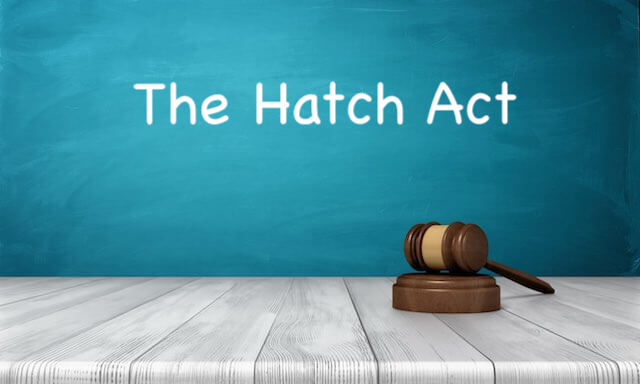With the U.S. 2024 presidential election all but set as a rematch of President Biden vs. former President Trump, many Americans have already taken to the digital streets to either advocate for their preferred candidate or listen in to the various opinions of internet denizens to try and formulate their own opinions for the election this November.
This is seen in PEW research data around the time of the previous presidential election in 2020, as almost 20% of U.S. adults said that social media was their most common way to get political and election news, with those numbers skyrocketing to 48% and 40% for adults in the age ranges of 18-29 and 30-49, respectively.
We don’t even have to look at data to see social media’s impact on individuals’ political views, as even in the mainstream news, concerns surrounding censorship on apps like TikTok and X (formerly Twitter) have led to national discussions around how social media can impact elections.
All this being said, with easy access to these forums through computers, smartphones, and smartwatches, many may be sucked into engaging in these debates or get involved with campaigning when they get a down moment during the day, which unfortunately for federal employees could actually end up ruining their careers by violating the Hatch Act.
The main purpose of the Hatch Act is to limit the political activities of federal employees—among other government employees—with connections to federally funded programs in an effort to ensure that these programs are run in a non-partisan fashion and protect employees from potential political coercion.
However, the once clear line of “political activities” has been blurred in recent years, as with the easy and seemingly low committal of social media activism, would a post sharing supporting your favorite candidate really jeopardize your federal career?
While this article will go into more detail as to what is allowed and prohibited for federal employees to do when using social media, the following three bullets provide a simple overview of what federal employees should keep in mind when using social media to comply with the Hatch Act this election season.
- Federal employees may not engage in political activity while on duty or in the workplace.
- Federal employees may not knowingly accept, receive, or solicit a political contribution for a political party, candidate, or group in a partisan race.
- Federal employees may not use their official authority or influence to affect the outcome of an election.
Some employees actually have further restrictions—aptly considered “further restricted” employees under the Hatch Act—however, for the case of most career feds, the above three bullets serve as enough of a guide to ensure compliance with the Hatch Act. In addition to the above prohibitions, these “further restricted” employees are not allowed to take an active role in partisan political management or campaigning.
While there are some very limited exceptions to these prohibitions for certain employees in certain positions, if you are in doubt when it comes to your ability to be politically active, it may be wise to speak with the U.S. Office of Special Counsel (OSC) or learned legal counsel to ensure that you are best protecting your legal career while maintaining your political voice.
Let’s go over each bullet and give some practical examples as to what would be allowed and prohibited.
Federal Employees May Not Engage in Political Activity While on Duty or in the Workplace
Let’s say you are on lunch break, and while staying at your workplace, you decide to check Instagram on your personal cell phone and see a post from a friend about an upcoming rally event supporting a candidate in a partisan race. Would you be able to share or like the post?
Unfortunately, you would be in violation of the Hatch Act, as even if you are not in a paid status on your lunch break, you are still in the workplace. It does not matter if your profile is private or public.
However, let’s move the same example to when you are at home after work. In this situation, you would be able to like or share a post encouraging others to vote for your preferred candidate in the upcoming race.
One thing to be careful of though is using social media when working remotely. While most Office of Special Counsel guidance indicates that if you are working outside of a federally owned or lease building and not in a paid status (say, on lunch), you would be able post or comment like in the examples above, it may not be recommended since proving where you were or whether or not you are in a paid status could be difficult.
This is similar to other social media actions like following candidates or partisan groups and changing profile pictures. Simply put, if it’s at the workplace, don’t do it, but outside the workplace, it’s ok.
These rules apply even if you are using an alias online. Even if your name is Mary Sue, you wouldn’t be able to do the above in the workplace if your account was under the name of Mary Smith.
Federal Employees May Not Knowingly Accept, Receive, or Solicit a Political Contribution for a Political Party, Candidate, or Group in a Partisan Race
Similar to our examples above, let’s say you were attending a local political party’s fundraising event. You would not be able to message your X following asking them to join you at the event or asking them to donate for support of the event. However, it is important to note that you are not prohibited from donating to the event, only the posting or usage of social media to promote could land you in trouble.
Let’s say after the event, they posted a picture and had you tagged in it. Could that land you in trouble? Not entirely, nor is it your duty to remove that post from your page or get untagged; however, you would not be allowed to share or like that post.
Federal Employees May Not Use Their Official Authority or Influence to Affect the Outcome of an Election
In general, you are allowed to include your official title and position, along with where you work, on your social media accounts; however, where issues could arise is if you choose to either make posts directed at the success or failure of a political party or candidate or mention subordinates in posts in support of a candidate for an upcoming partisan election from those accounts.
One of the most common pitfalls is with LinkedIn, since profiles are generally professionally oriented and include both an individual’s official job title/position. Even if you are not posting or sharing during work hours, you cannot engage with any post related to a political party or candidate success or failure.
Protect Your Federal Career this Election Season
While these examples are only brief, real-world examples of when an individual would not be complying with the Hatch Act, there are many more examples and nuances that federal employees should be aware of should they choose to make their voices heard in this upcoming election. Historically, this has been a tricky area for compliance for federal employees, more so during election years.
Even apart from social media conduct, employees must be aware of how the Hatch Act limits political activities in the federal workplace during working hours or on federal property at all times. With penalties ranging from suspensions and reprimands to reductions in grade and removal from federal service, any politically active federal employee should be well-versed in the restrictions of the Hatch Act.
Again, if you are in doubt or under suspicion about your compliance with the Hatch Act, it may be wise to speak with experienced legal counsel so that you can best protect your federal career while engaging with this new form of online activism.





